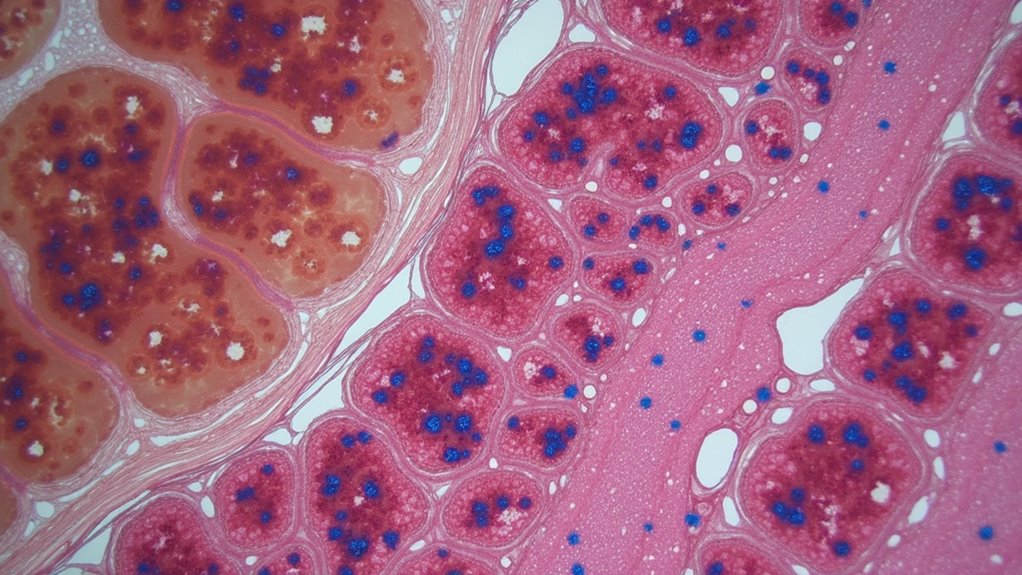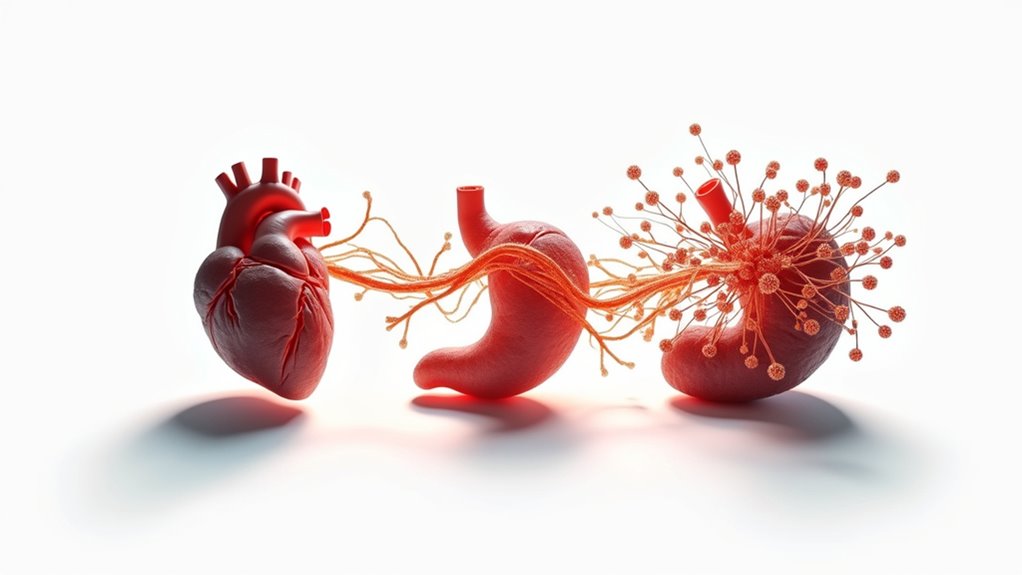While fighting cancer is hard enough on its own, many patients face an even more brutal reality: diabetes and heart disease lurking in the shadows, ready to complicate everything. The numbers don’t lie. Cancer patients with diabetes or cardiovascular disease face a markedly higher risk of dying. Not just from the cancer they’re already battling, but from everything else too.
Here’s the ugly truth: diabetes raises all-cause mortality risk by about 35% in cancer survivors. Think about that. You survive cancer only to have diabetes drag you down. And it’s not just diabetes acting alone. Heart disease jumps into the mix too, especially for patients already dealing with obesity. Beta cells in the pancreas struggle to maintain proper insulin production, making blood sugar control even more challenging.
These aren’t simple, isolated problems. They’re complex medical nightmares. Diabetes complicates cancer treatment, messes with your body’s metabolism, and can even make tumors more resistant to therapy. Yeah, that’s right. Your diabetes might be helping your cancer fight back against treatment. Not exactly what anyone wants to hear.
The timing matters too. Had diabetes before cancer? Bad news. Developed it after diagnosis? Still bad news. Either way, your chances take a hit. Cancer-specific mortality, cardiovascular death, complications from diabetic issues—they all increase. Uncontrolled diabetes can lead to renal failure, which further compounds the risk for heart failure and overall mortality.
So what’s a patient to do? Managing these conditions is essential. It’s not optional. Blood sugar control, blood pressure management, weight control—all of it matters. A lot. Without addressing these “silent killers,” cancer patients face unnecessary additional risks.
Colorectal, breast, prostate—practically all cancer types show worse outcomes when diabetes or heart disease enter the picture. The study found particularly concerning outcomes for less common cancers like brain, stomach, ovarian, and bladder cancers. The risk gets worse the longer someone’s had diabetes, too.
Bottom line: cancer treatment can’t happen in isolation anymore. Doctors need to look at the whole patient—cancer, heart disease, diabetes, the works. Because beating cancer might be just the first battle in a longer war that many patients don’t even realize they’re fighting.








